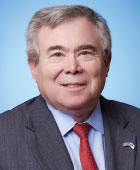Physician Heal Thyself?

October 10 was both World Mental Health Day and National Depression Screening Day. To mark that day at Montefiore Medical Center, we were honored to have Susan J. Noonan, M.D., M.P.H., as our Grand Rounds speaker. Dr. Noonan, who is an emergency physician at Massachusetts General Hospital, has publicly discussed her struggles with depression and written books on depression for patients and family members. She is also a certified peer specialist and consultant at McLean Hospital.
There is much concern today about physician wellness, depression, and suicide. There are few medical schools, hospitals, academic medical centers, and residency training programs that have not suffered the loss of an esteemed and respected colleague, resident, or medical student. The problem, however, is much larger than that in the house of medicine. The United States is one of the few countries in the world experiencing an increase in suicides. It is now the second leading cause of death for youth and the tenth leading cause of death overall.
Hearing Dr. Noonan discuss her long-time refusal to seek treatment for her depression, the fear that her colleagues or superiors would learn of her mental illness and think less of her, and her concern that knowledge of her illness might negatively impact her career was a stark reminder about the stigma surrounding mental illness. Here was a highly educated, talented, and successful woman who despite working in a health care setting and experiencing great personal suffering was for too long unwilling to get care.
In the question-and-answer period that followed her talk, I asked her how we might change our environment and education so that other physicians would be more comfortable seeking treatment. She responded that the leadership in medicine must create an environment that encourages openness and wellness. I certainly agree that this is the minimum prerequisite for a health care setting. We have been struggling with stigma and discrimination in medicine for a long time. While stigma is diminishing among the general public, we still have a long way to go. But Dr. Noonan’s talk was a reminder that perhaps in medicine—where we are especially competitive, driven, overly selfless, and devoted to others—self-stigmatizing beliefs may be even more of a problem than in society at large. How do we turn the corner and address the silent suffering, loss of talent, and lack of resources to better help our friends and colleagues get needed treatment?
Education on a broad range of mental health issues is limited by time in medical school and most residency programs. Although physician wellness, well-being, and prevention of burnout have been receiving much needed attention in the past few years, the effort has fallen short of effectively addressing severe depression and suicidality. All physicians should be exposed to colleagues, like Dr. Noonan, who have been treated for depression. They are role models and proof that our careers will not end if we take medication or are in psychotherapy. We have slowly—too slowly—come to learn that there is no need to hide these illnesses any more than we would want to hide having diabetes, breast cancer, or hypertension.
I believe that only when our colleagues who have faced and successfully gotten help for depression, suicidality, substance use, and other mental illnesses come forward to share their stories that more of us in need of psychiatric treatment will get that care. Recruiting such a cadre of physicians is not easy—there is stigma, after all—but our health and the long-term health of our profession depend on it. ■



